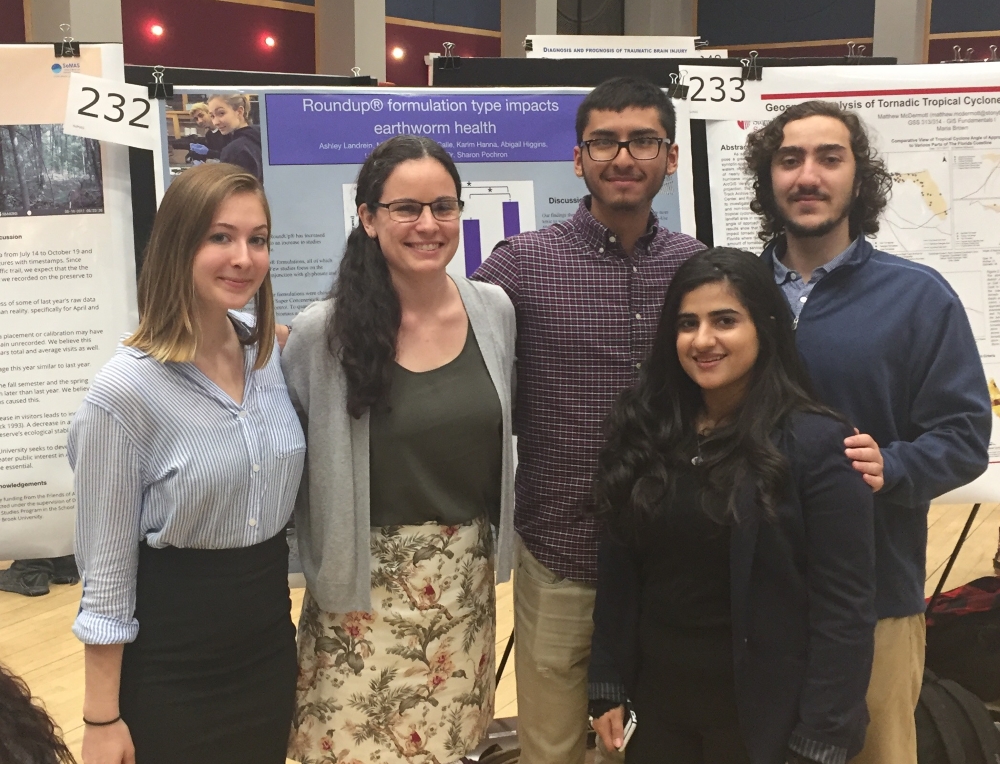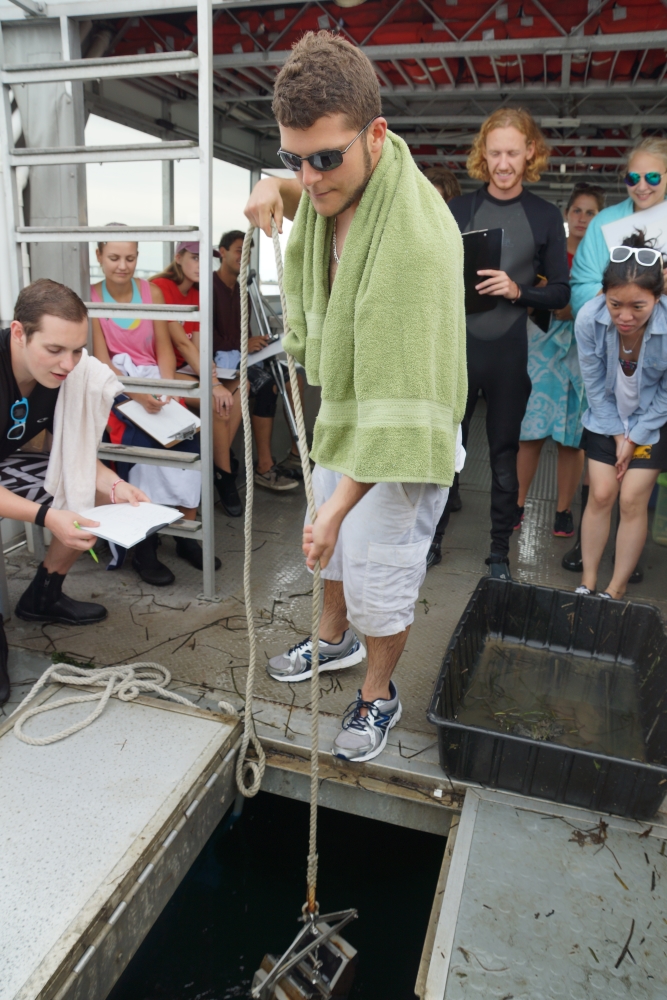Highlights From Our Recent Graduates
Congratulations to our graduates and best of luck on your future endeavors!
#seawolvesforlife
Ashley conducted her Honor’s research in the Worm Lab because she wanted to know more about how a common herbicide, Roundup, impacted the environment and non-target organisms like earthworms. She knew from a literature review that many ecotoxicologist had studied the impact of glyphosate, the active ingredient of Roundup, on earthworms, but the effect of the Roundup formulations remained unstudied. She thought this was crazy because no one uses glyphosate to kill weeds. They use Roundup formulations. Under her leadership, her group found that Roundup Ready To Use has a stronger environmental impact than Roundup Super Concentrate, and that both formulations were more deadly to earthworms than was glyphosate alone. There are dozens of Roundup formulations out there, all used in different ways. Ashley understands that we need to assess the costs of using these week killers even as we appreciate the benefits.
This summer she will study coral reef restoration at the Mote Marine Laboratory and Aquarium in Florida.
Maria (far right in the picture on the right) was an undergraduate winner of the 2017 Evan R. Liblit Memorial Scholarship, given for outstanding academic accomplishments in the environmental sciences including waste management, for her numerous efforts to promote sustainability and the environment. This is the largest award for an undergraduate in SoMAS and is extremely competitive. Her acceptance speech at the award ceremony was extremely gracious and powerful. The audience was so impressed that one of the engineering consulting firms offered her a job on the spot.
Christina will begin law school in the Fall, but first plans to tour England, Scotland, and Wales with her grandmother this summer.
Brooke conducted an Honor’s thesis in the Earthworm Toxicology Lab, leading a group of students as they tackled an environmental question of civic importance. They wanted to know if people could be eating livestock pharmaceuticals when they ate the peas grown in their back yards. After assessing the contamination pathway (from horses with worms, to medicine, to poop, to compost), Brooke led her team through the rigors of creating potentially contaminated plants and testing them for contamination. The answer does not exist in the literature, but Brooke and her team demonstrated clearly that your garden peas are capable of bioaccumulating pharmaceuticals meant to kill intestinal worms in cows, sheep and horses. When Brooke graduates with her Bachelors in Ecosystems and Human Impact, she’ll be entering the MS program in Ecology and Evolution here at Stony Brook University.
But where Matthew may be most recognizable is at Earthstock, where he has helped celebrate Earth Day at Stony Brook University hidden behind the mask of our lobster. Matthew’s enthusiasm and dancing ability provide a welcoming personality to our lobster, and he has been captured in many photos at Earthstock. His favorite memory as the lobster was “dancing around crazily and of course photobombing everyone’s photos.” And even better is the fact that he “can talk to people through the costume, but a lot of the time, they have no idea it’s me!”
Matthew is currently applying for jobs once he graduates, but he would really like to travel a bit across Europe and in the U.S. He’s not ruling out graduate school, either.












